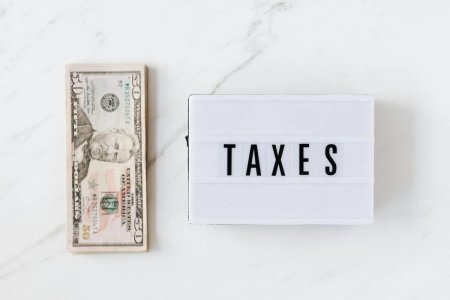Lawsuit challenges US Treasury over DOGE access—is your personal data at risk?
By
Aubrey Razon
- Replies 0
In today’s digital world, protecting personal data is more important than ever. A new lawsuit claims that a government agency may have gained access to highly sensitive financial systems.
Could this put millions of Americans at risk?
In a world where data security is increasingly important, protecting personal information is a key concern, particularly for those relying on Social Security, Medicaid, and other government programs.
A lawsuit against the US Treasury raises questions about whether the Department of Government Efficiency (DOGE), led by Elon Musk, has been granted access to sensitive financial systems.
The lawsuit, filed by the American Federation of Government Employees (AFGE), the Service Employees International Union (SEIU), and the advocacy group Alliance for Retired Americans, aims to address concerns about data privacy.

These organizations have brought the case to federal court in Washington, D.C., arguing that DOGE's access to the US Treasury payment system may conflict with privacy laws, including the Privacy Act of 1974, and other regulations governing network access.
The plaintiffs are requesting a restraining order to temporarily block DOGE from accessing the system, which processes transactions including Social Security payments and tax refunds.
The lawsuit names Treasury Secretary Scott Bessent, the Department of the Treasury, and the Bureau of the Fiscal Service as defendants.
The lawsuit claims that if DOGE is granted ongoing access, there is no certainty that retirees, taxpayers, federal employees, and companies will have their information protected under federal law.
"Granting DOGE-affiliated individuals full, continuous, and ongoing access to that information for an unspecified period of time means that retirees, taxpayers, federal employees, companies, and other individuals from all walks of life have no assurance that their information will receive the protection that federal law affords," the lawsuit states.
The discussion around DOGE's access to the Treasury's payment system involves both privacy concerns and potential efficiency and cost-saving measures.
The Trump administration, which has prioritized reducing federal spending, views DOGE's role as a way to analyze taxpayer transactions and identify possible areas for cost reduction.
Elon Musk, designated as a “special government employee,” has been serving in this role without compensation.
The expanded access, approved by Secretary Bessent, broadens DOGE’s responsibilities beyond its original focus on workforce reductions and program adjustments.
The lawsuit has led to ongoing discussions, with analysts and lawmakers sharing their perspectives.
Washington Senator Patty Murray has raised concerns about the issue, while Richard Fiesta, executive director of the Alliance for Retired Americans, emphasized the risks seniors face from fraud and scams, referencing FBI data that reported $3.4 billion in losses in 2023.
The complaint also claims that an official faced consequences after attempting to restrict unauthorized access, alleging that within a week of Bessent's tenure as Treasury Secretary, the official was placed on leave, and DOGE was granted full access to the Bureau’s data.
Also read: Top USAID security chiefs ousted for blocking Elon Musk's DOGE team's access.
Elon Musk has defended DOGE's actions, stating on social media that the team identified concerns within the Treasury, including payment approval officers who, according to him, never denied payments, even in cases of fraud or illicit activities.
President Trump has stated that while Musk “has some very good ideas,” no actions will be taken without his approval.
Meanwhile, Senate Democratic Leader Chuck Schumer has called on the Treasury Secretary to revoke DOGE's access to the payment system.
As the lawsuit moves forward, its outcome could have broader implications for data security and government operations.
Staying informed and aware of these developments is important for understanding potential impacts on personal information and privacy.

Have you experienced concerns about data privacy? How do you feel about the government's role in protecting your information? Share your thoughts and insights in the comments below.
Could this put millions of Americans at risk?
In a world where data security is increasingly important, protecting personal information is a key concern, particularly for those relying on Social Security, Medicaid, and other government programs.
A lawsuit against the US Treasury raises questions about whether the Department of Government Efficiency (DOGE), led by Elon Musk, has been granted access to sensitive financial systems.
The lawsuit, filed by the American Federation of Government Employees (AFGE), the Service Employees International Union (SEIU), and the advocacy group Alliance for Retired Americans, aims to address concerns about data privacy.

The controversy focuses on DOGE's role and authority and the potential risks of access to sensitive information. Image source: @elonrmuskk/Instagram.
These organizations have brought the case to federal court in Washington, D.C., arguing that DOGE's access to the US Treasury payment system may conflict with privacy laws, including the Privacy Act of 1974, and other regulations governing network access.
The plaintiffs are requesting a restraining order to temporarily block DOGE from accessing the system, which processes transactions including Social Security payments and tax refunds.
The lawsuit names Treasury Secretary Scott Bessent, the Department of the Treasury, and the Bureau of the Fiscal Service as defendants.
The lawsuit claims that if DOGE is granted ongoing access, there is no certainty that retirees, taxpayers, federal employees, and companies will have their information protected under federal law.
"Granting DOGE-affiliated individuals full, continuous, and ongoing access to that information for an unspecified period of time means that retirees, taxpayers, federal employees, companies, and other individuals from all walks of life have no assurance that their information will receive the protection that federal law affords," the lawsuit states.
The discussion around DOGE's access to the Treasury's payment system involves both privacy concerns and potential efficiency and cost-saving measures.
The Trump administration, which has prioritized reducing federal spending, views DOGE's role as a way to analyze taxpayer transactions and identify possible areas for cost reduction.
Elon Musk, designated as a “special government employee,” has been serving in this role without compensation.
The expanded access, approved by Secretary Bessent, broadens DOGE’s responsibilities beyond its original focus on workforce reductions and program adjustments.
The lawsuit has led to ongoing discussions, with analysts and lawmakers sharing their perspectives.
Washington Senator Patty Murray has raised concerns about the issue, while Richard Fiesta, executive director of the Alliance for Retired Americans, emphasized the risks seniors face from fraud and scams, referencing FBI data that reported $3.4 billion in losses in 2023.
The complaint also claims that an official faced consequences after attempting to restrict unauthorized access, alleging that within a week of Bessent's tenure as Treasury Secretary, the official was placed on leave, and DOGE was granted full access to the Bureau’s data.
Also read: Top USAID security chiefs ousted for blocking Elon Musk's DOGE team's access.
Elon Musk has defended DOGE's actions, stating on social media that the team identified concerns within the Treasury, including payment approval officers who, according to him, never denied payments, even in cases of fraud or illicit activities.
President Trump has stated that while Musk “has some very good ideas,” no actions will be taken without his approval.
Meanwhile, Senate Democratic Leader Chuck Schumer has called on the Treasury Secretary to revoke DOGE's access to the payment system.
As the lawsuit moves forward, its outcome could have broader implications for data security and government operations.
Staying informed and aware of these developments is important for understanding potential impacts on personal information and privacy.
Key Takeaways
- A group of unions and an advocacy organization have filed a lawsuit seeking to block the Department of Government Efficiency (DOGE) from accessing the US Treasury payment system, citing data privacy concerns.
- The lawsuit claims that DOGE, associated with Elon Musk, was granted access to sensitive information in a manner that may violate privacy laws.
- Access to government payment systems could support DOGE's efforts to reduce federal spending but has also raised concerns about the protection of personal and financial data.
- The controversy focuses on DOGE's role and authority, the potential risks of access to sensitive information, and the legal challenges raised by concerned parties.






